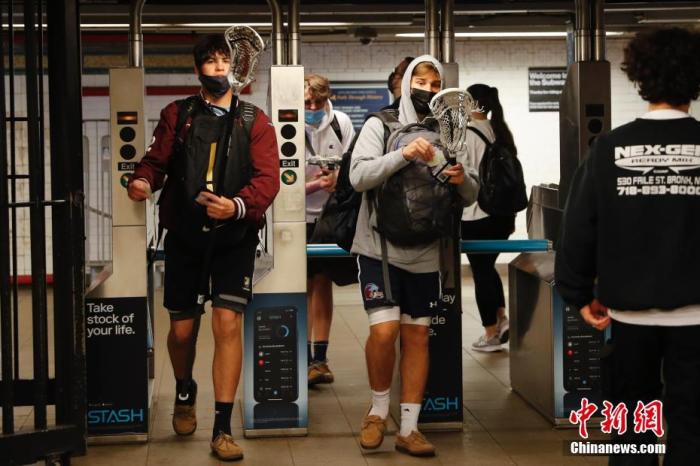Chinanews.com, August 4, according to a report from Bloomberg News quoted by the American Chinese website, a new survey shows that many white-collar workers in the United States expressed their willingness to reduce pay, take fewer vacations or increase working hours in exchange for the option of working from home.
On May 17, local time, at the Union Square Subway Station in New York City, USA, passengers entered the station.
On the same day, the New York City subway system resumed 24-hour operation.
Photo by China News Agency reporter Liao Pan
According to reports, according to an online survey conducted by market research company Pollfish in July, among those interviewed US employees whose work can be done completely remotely (sample size is 1,000), 65% are willing to cut their salary by 5%. , In exchange for the opportunity to work from home.
According to reports, since the spread of the new crown epidemic for more than a year, many white-collar workers in the United States are still working from home.
Some companies hope to attract employees to return to the office by organizing parties, preparing gifts, providing free lunches and children's day care, and even free yoga classes.
However, some employees still expressed concern about the spread of the new crown mutation virus. They hope to participate in family affairs and the inconvenience of commuting are also reasons why they want to work from home.
However, there are limits to compromises on wages.
The majority of respondents said that the maximum salary cut they can compromise is 5%, and 15% of respondents said that they can sacrifice up to 25% of their salary in exchange for the opportunity to work from home.
In addition, 46% of the respondents said that in order to work from home, they can promise to take a quarter of the company's vacation, and 15% of the respondents said that they can give up all paid vacation.
The survey also asked respondents what they are willing to give up in order to be able to work from home, in order to explore people's determination to want to work from home.
More than half of the respondents said that they could not use social media or some shopping software for a year; one-third of the respondents said that they could give up federal or local voting rights.

